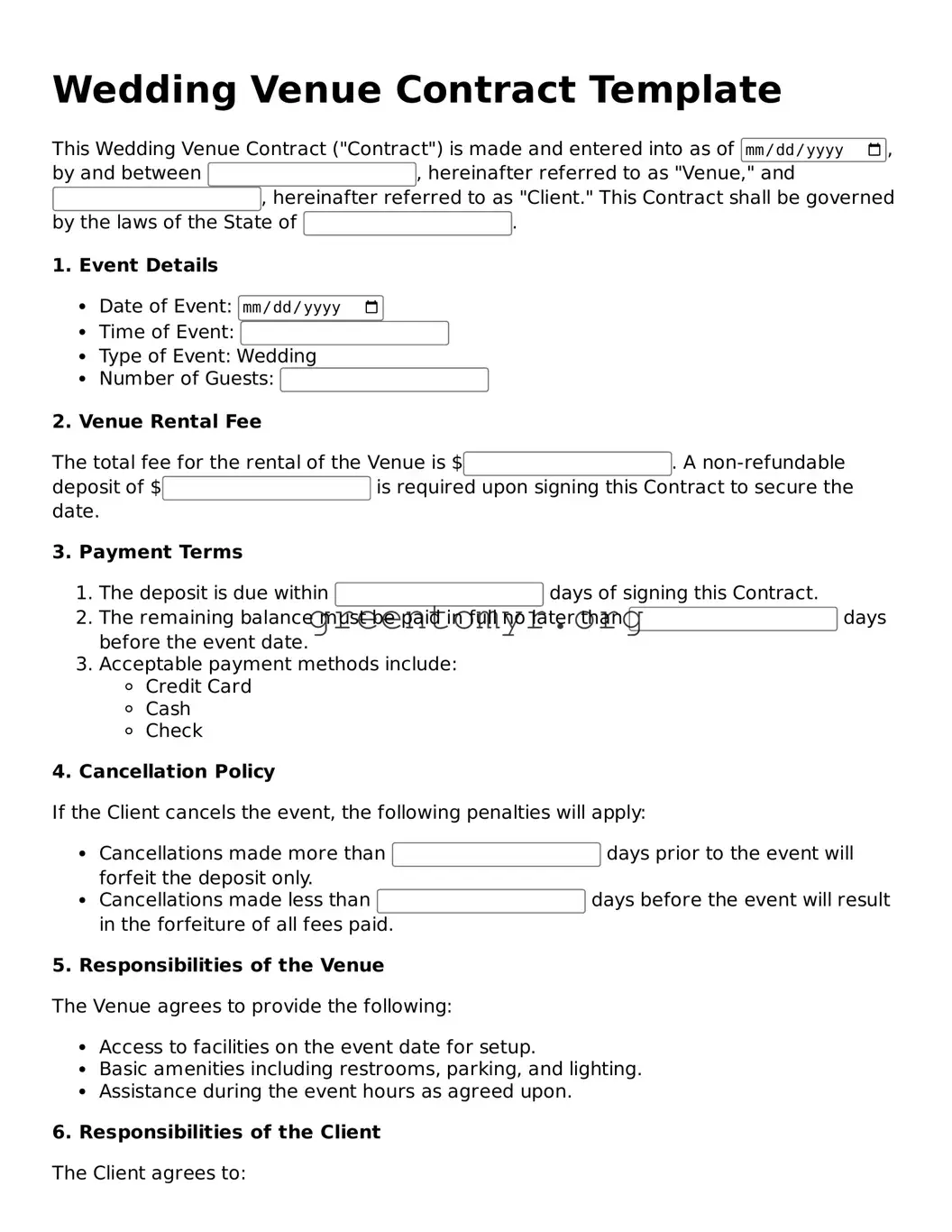Valid Wedding Venue Contract Form
The Wedding Venue Contract is a crucial document that outlines the terms and conditions of renting a venue for your special day. This agreement serves to protect both the couple and the venue operator, ensuring all expectations are clearly defined. Prioritize your planning by filling out the form below to secure your dream location.
